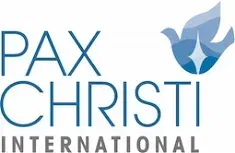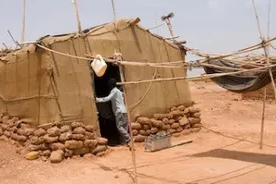The war on women: Pax Christi International statement on Sudan - call for support

In Sudan, women and girls are bleeding in silence.
To shatter the silence, Pax Christi International is releasing the following statement which has been endorsed by Nobel Peace Prize recipient Mairead Maguire and the Nobel Women's Initiative. Written by PCI Sudan Working Group member Dr Mawa Mohamed and Abla Boush, the statement below is intended for study and action regarding the ignored situation of women and girls in one of worst humanitarian crises in the world.
The war on women: A statement on the situation in Sudan
Written by Dr Mawa Mohamed and Abla Boush
Pax Christi International invites you, your organization, religious congregation or entity to endorse the statement by filling in this form
The numbers related to sexual violence against women and girls are not just statistics-they are a cry for urgent action, attention, and solidarity. Soaring rates of rape, gang rape, femicide, sexual slavery, child marriage, and female genital mutilation-just to name a few-paint a devastating picture across the African continent.
And there lies Sudan: a country bleeding in silence.
At dawn on April 15, 2023, war erupted in Sudan-an East African nation known for the generosity, warmth, and hospitality of its people. A country that once opened its arms to others has now become the stage of an unfolding nightmare for its own citizens.
The war struck like a horror movie. In an instant, families were forced to flee, leaving behind homes, dreams, and loved ones. Many escaped with nothing but the clothes on their backs. Some became internally displaced, taking shelter in schools or makeshift camps. Those with means fled to Egypt, paying exorbitant fees. Others walked for hundreds of kilometres to neighbouring countries like South Sudan and Chad, clinging to the hope of safety-but the nightmare followed them.
In areas where the Rapid Support Forces (RSF) advanced, entire villages emptied in fear. Displaced families fled again and again. In refugee camps, especially in Chad, women were forced to sell their bodies just to feed their children. This is the darkest face of war: where survival comes at the cost of dignity.
The Sudanese conflict has exposed the brutal reality of how women's bodies are used as weapons of war-to crush the will of a people. Rape has become a calculated tool of domination. Women and girls of all ages-babies, teenagers, mothers, grandmothers-have been brutalised. Many were gang raped in front of their families. Some took their own lives, unable to bear the physical and psychological torment. Others died by suicide simply to avoid the threat of rape and the lifelong stigma that follows.
In Sudanese society, the shame of rape too often falls on the survivor, not the perpetrator. Every girl who survives sexual violence must also survive a culture that blames her for enduring it. These are girls who once had dreams-dreams stolen in a flash of terror.
And this violence did not begin in April 2023. In Darfur, for years, women have faced the same horrors that now haunt the entire nation. Women in Darfur were the first to scream, but few listened. Today, their pain echoes through every corner of Sudan.
Women in Sudan have been left to face the unspeakable-alone.
In this brutal conflict, many have lost not only their homes and families, but the very meaning of life. Their suffering is not accidental-it is intentional. It is war by design. The violence inflicted on their bodies is not a byproduct of war. It is a strategy of control, humiliation, and erasure.
Their cries echo across the country, but the world remains silent.
Rape, hunger, slavery, and mutilation have pushed them to the edge of human endurance. Some have taken their own lives, unable to bear the agony. Others continue to live with trauma so deep it fractures the soul. These are not choices-they are consequences no one should ever have to face.
But before you say, "these women are calling for sympathy"… pause for a second.
These women, despite enduring unimaginable pain, have shown extraordinary resilience. They are not passive victims. They are fighters. In the heart of destruction, they stood on the frontlines-not with weapons, but with fierce determination-to protect their children, their communities, and their dignity. They carried unbearable trauma while holding their families and neighborhoods together. Their strength is not quiet-it is fierce. Revolutionary. Unshakable.
They are not just surviving this war. They are resisting it. And in doing so, they are redefining what it means to be powerful, to be human, to be Sudanese.
Let us stand with these women-not out of pity, but out of recognition, solidarity, and responsibility. Their voices must be heard. The silence that has shielded this violence must be shattered. They deserve protection, dignity, and a future free from fear-because their strength is the foundation of Sudan's tomorrow.
To protect these women is to protect Sudan itself-its soul, its culture, and its future.
Recommendations for action
1) Economic and psychosocial support for survivors
Implement rapid-impact economic empowerment programs for women, especially those who are heads of households or displaced. Suggested interventions include conditional cash transfers and "cash-for-work" opportunities targeting women in camps.
Fund community-based psychosocial healing sessions, proven effective in Khartoum and other parts of the Global South, to help women process trauma in safe, peer-led environments.
2) Protect women from exploitation and violence
Create protection mechanisms in markets and informal workplaces, including:
Community women's protection committees.
Gender-sensitive reporting channels.
Where possible, the presence of trusted female law enforcement officers.
Pressure international bodies to hold armed actors accountable, especially militia members, through mechanisms that treat sexual violence as a weapon of war.
3) Restore basic services in displacement zones
Prioritise access to clean water, primary health care, and essential nutrition in IDP and refugee settlements.
Focus on vulnerable groups-pregnant and nursing women, elderly women, and children under their care-who suffer most from service collapse.
4) Curb the war economy and resource blockade
Armed groups, particularly the Rapid Support Forces, have exploited roads, markets, and resources-imposing illegal fees and blocking humanitarian aid.
International actors should make sanction networks profiting from war (including gold/smuggling traders) and disrupt illicit supply chains fueling the conflict.
5) Invest in women-led economic recovery
Micro-grants and loans.
Vocational training in camps and return areas.
Building women-led cooperatives to generate income and local employment.
6) Ensure women's inclusion in peace and political processes
Women, especially from conflict and displacement zones, must have meaningful representation in peace negotiations and reconstruction planning.
Follow international norms such as UNSCR 1325 and aim for at least 30 percent women's participation in any dialogue or reform platform.
Recognise women's essential role in sustaining families and communities during war and centre their perspectives in shaping Sudan's future.
7) Promote equitable and inclusive reconstruction
Address inequalities exacerbated by the war-whether tribal, regional, or economic.
Ensure transparency in the distribution of aid and rebuilding resources. Establish independent oversight committees, including women, to prevent favouritism and exclusion.
8) Bridge emergency relief with long-term development
Shift gradually from emergency aid to sustainable recovery. For example:
Combine food assistance with the distribution of seeds and tools to promote home farming.
Turn camps into sites of learning and production, by creating training centres and women-led workshops.
This approach fosters self-reliance, reduces aid dependency, and narrows the unemployment gap affecting women
If you or your organisation or religious congregation wish to endorse this statement please sign the form here
(ICN has already signed)


















